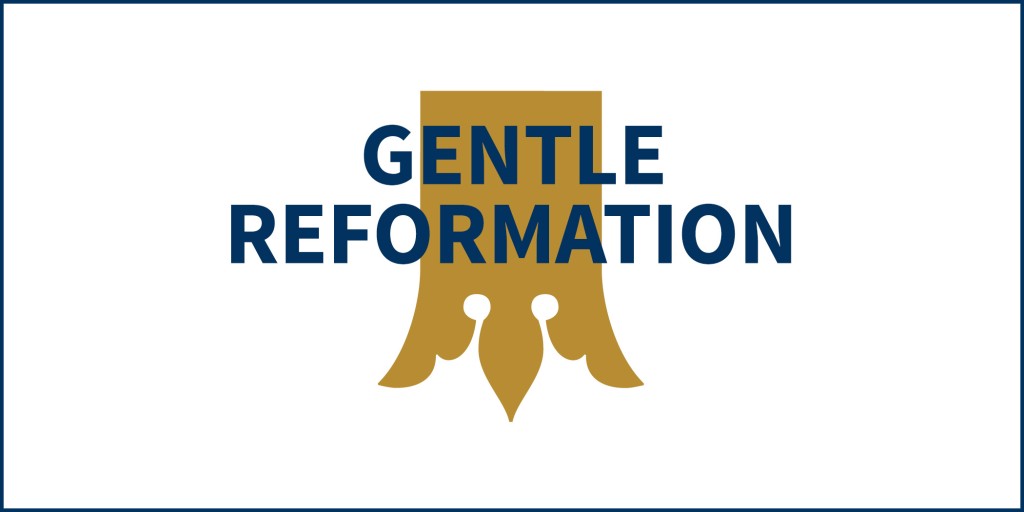You have free articles remaining this month.
Subscribe to the RP Witness for full access to new articles and the complete archives.
Let them be put to shame and dismayed forever; let them perish in disgrace” (Ps. 83:17).
These are strong words indeed! Yet we find such imprecations, such curses, throughout the psalter. These prayers of destruction upon our enemies are a common feature of the Psalms. We take them upon our lips when we read the Psalms. We utter them back to the Lord when we pray through a psalm. We sing and declare them publicly each and every Lord’s Day in our praise. But how are we to sing such requests for calamity upon our foes?
This tension is only exacerbated when we interact with those who don’t regularly use the Psalms in worship. An elder from another Reformed denomination quoted some of the most difficult words of the Psalter: “Blessed shall he be who takes your little ones and dashes them against the rock” (Ps. 137:9). Then he said, “I understand those words are in the Bible, but you don’t have to sing them!”
A part of us viscerally understands what he means. Some people want to go so far as to do away with the curses altogether! As with C. S. Lewis’s charge that these curses are “vindictive hatred” and that we would be “wicked if we in any way condoned or approved it” (Reflections on the Psalms, 1958), there are believers who think such curses are relics of the past and would be better left as relics. Rev. Tim Keller, for instance, would rather the forgiveness of Jesus show us a better path than seeking justice against our enemies. As we stand on the other side of the cross, “this for-ever changes our view of our own [suffering] and the way we seek justice” (The Songs of Jesus: A Year of Daily Devotions in the Psalms, 2015).
But are such sentiments correct when we find these curses strewn throughout our inspired praise book? Time and again we sing of blessing upon God’s people, coupled with prayers for God to oppose and destroy those who oppose Him, His kingdom, and His people. These two themes are inextricably linked together. You can’t have salvation in the Psalms without salvation from our adversaries. Prayers for deliverance are consistently coupled with requests that God’s opponents be thwarted. It is as though we’re being instructed that you can’t have one without the other.
Not only is our inspired book of praises full of these types of imprecations, but the New Testament is replete with similar language. Romans 12:19 calls us not to take personal vengeance upon our enemies, but to “leave room for the wrath of God.” Then it provides the reason: “Because vengeance is mine, I will repay, says the Lord.” Or when speaking about false prophets and deceptive men creeping into the church to preach another gospel, Paul in Galatians 1:8–9 says, “May they be accursed.”
Occasionally, the charge is raised that we ought not pray curses about individuals; yet elsewhere, Paul, speaking of Alexander the coppersmith, prays: “May the Lord repay him according to his works” (2 Tim. 4:14).
Lest we begin to believe that the Apostle Paul is a lone firebrand and a bit vindictive, let us not forget Christ’s many specific curses pronounced upon the scribes and Pharisees in Matthew 23. What is more, Jesus explicitly curses Judas for his wicked betrayal, and goes on to say: “It would have been better for that man if he had not been born” (Matt. 26:24).
Last, praying in perfect accord with the will of Christ, the saints around the throne in Revelation pray, “How long before you will judge and avenge our blood on those who dwell on the earth?” (Rev. 6:10).
All of this reveals what Christ has decreed about His enemies. And if Colossians 3:16 is remembered—that the Psalms are the very words of Christ—then we begin to see something far more glorious when we participate in such psalms: we are praying the curses of Christ. We sing the songs of Christ, in union with Christ. In other words, we are praying in accord with the very will of Christ—the destruction of His enemies—as revealed in His Word.
When we sing imprecatory psalms, we are not maliciously asking God to get on our side and beat up our personal foes. Far from it! Instead, we are praying in Christ, in accord with the will of Christ, counting His enemies as our enemies, and praying that the Lord would accomplish what He has promised, that which accords with His plan and purpose. We are cursing Christ’s enemies. We are praying destruction in the name of Christ and for the sake of Jesus Christ. We are thus reverently and appropriately cursing, in Jesus’ name.
